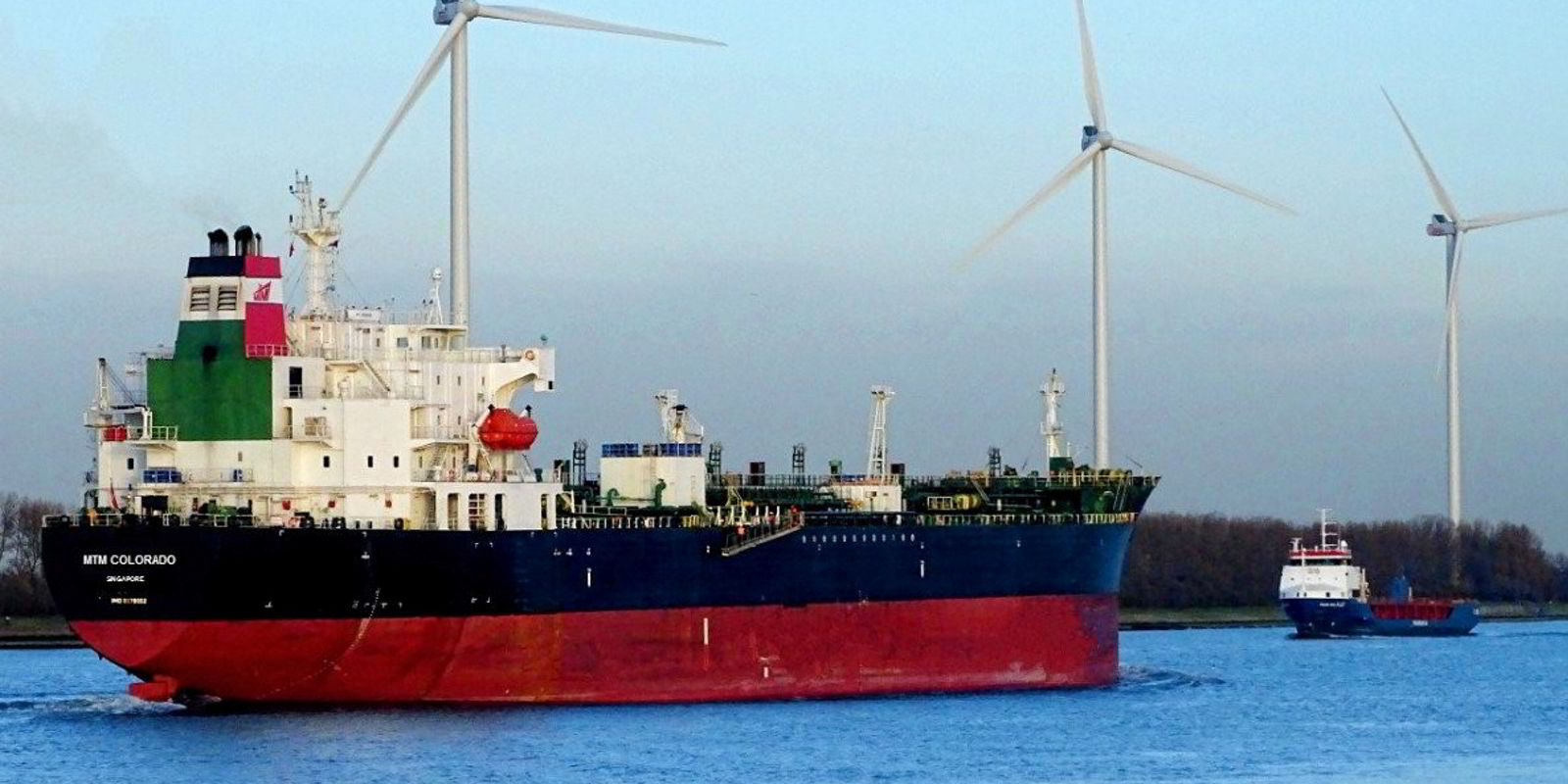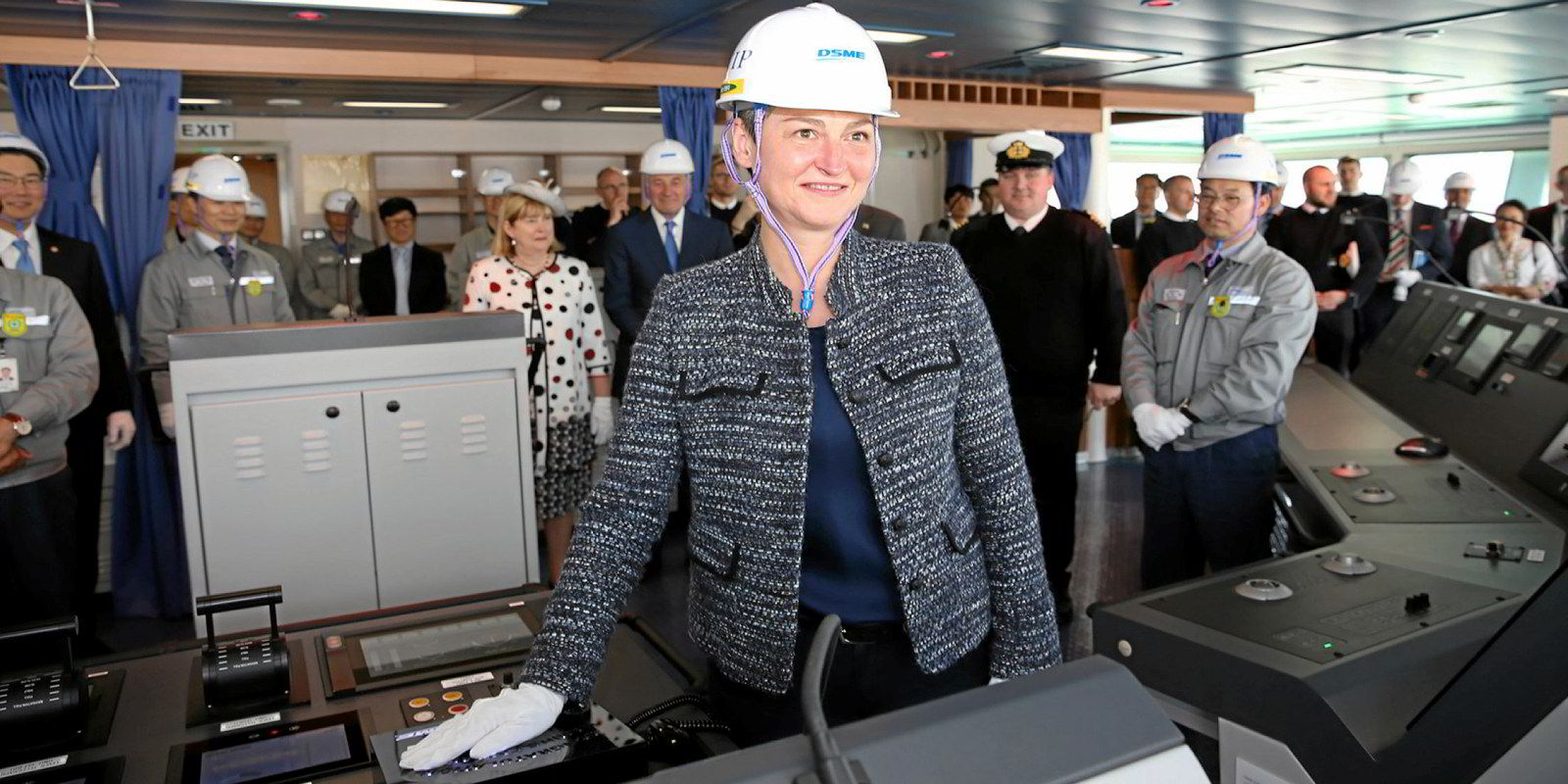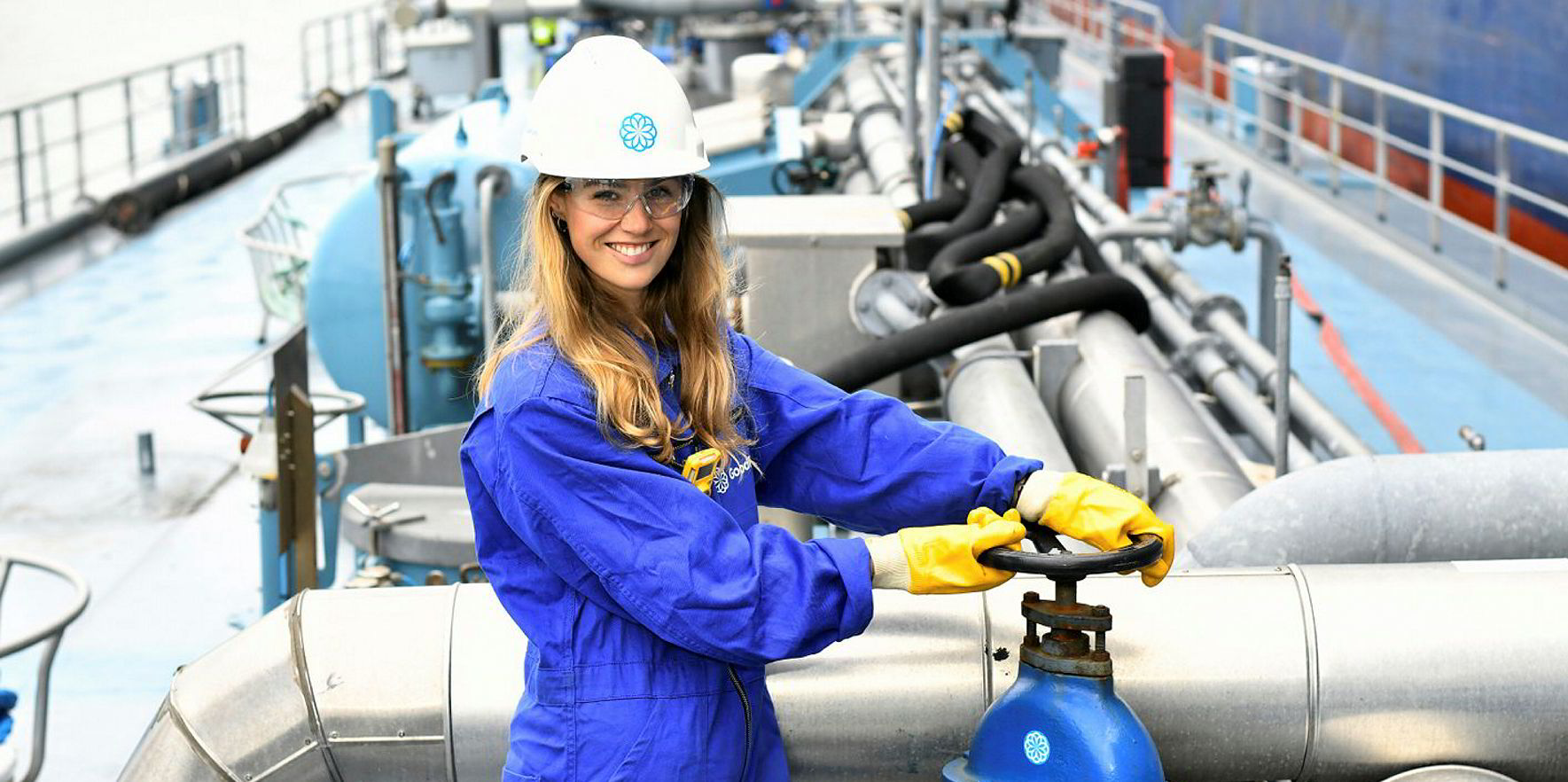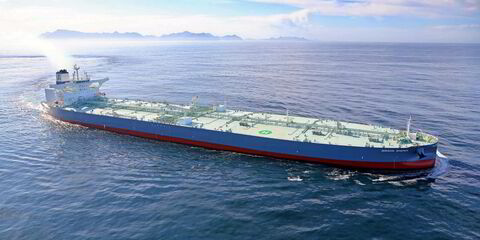MTM Ship Management is the latest company to successfully complete a transatlantic voyage on biofuel blended bunkers.
Encouraged by the performance of the 51,300-dwt tanker MTM Colorado (built 2004), which burned B30 biofuel on a trip between the Netherlands and Brazil in December, the company said on Friday that it will follow up with even more ambitious trials.
“We are aiming to do trials with bio-VLSFO [very low sulphur fuel oil] blends of B50 and a pure B100 biofuel,” Dimitris Harbis, business development director at the MTM Maritime Group, told TradeWinds.
The higher-grade blends will be tested in the next quarter on another chemical tanker and a handysize bulker.
Depending on bunker availability, the B50 fuel will be used for a transatlantic voyage and the B100 fuel in an unidentified Emissions Control Area.
The number describes the biofuel’s content in percentage of fatty acid methyl esters as it is blended with VLSFO.
Around the time the MTM Colorado was completing its voyage about two months ago, BP and Maersk Tankers that announced that they too had successfully tested B30 on two tankers travelling from Rotterdam to West Africa.
On Wednesday, Italy’s d’Amico Group even said it plans to roll out B30 to its entire fleet, following a successful test run last summer.
The Spliethoff Group is experimenting with 100% biofuels on a 12,500-dwt vessel in the Netherlands.
All these trials suggest that biofuel-blended marine fuel can indeed be used as a “drop-in fuel” to help cut carbon emissions.
Blended fuels are one option in shipping companies’ quest to reduce carbon emissions and polish their green credentials, alongside LNG, LPG, ammonia and hydrogen.
Rules of origin

Critics of blended fuels have raised concerns about their cost and the risk that they potentially pose to engines.
Another sticking point is how the biofuels were created. European Union regulators refuse to put a green label on biofuels derived from crops or animal feed, for fear that those encourage deforestation.
MTM, however, said the biofuel it used is derived from cooking oil and animal fat (tallow) and complies with the EU’s Renewable Energy Directive.
The company also said it found no evidence to support any concerns about the impact on engines.
“No problems were encountered at any step of the process,” it said.
Engines were inspected before and after the trial, and the condition of the fuel tank was assessed post-trial. “All were found to be satisfactory,” the company added.
Well-to-tank and tank-to-wake emissions of the MTM Colorado’s main engine dropped by 31.5% and of its auxiliary engine by 23.1%, compared with what it emits when burning unblended very low sulphur fuel.
Under the guidance of MTM technical director Prashant Lokhande and assisted by Trafigura, Lloyds Register, MAN/B&W, DNV and the Singapore flag state administration, the MTM Colorado “demonstrated that the use of biofuels is a practical and sustainable alternative to fossil fuels”, the company said.
MTM managing director Capt Rajiv Singhal said: “MTM’s mission has always been to not only operate ships at the highest safety standards, but generally go beyond regulatory requirements.”







